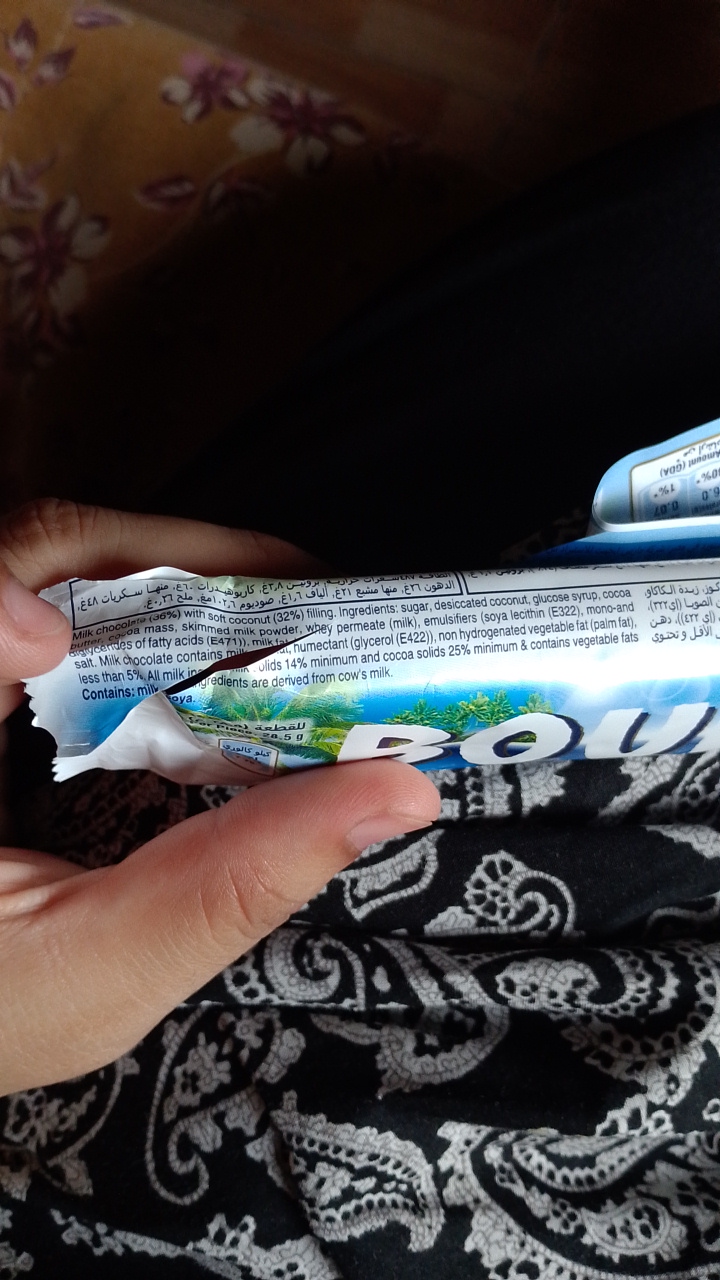
Barcode: 5000159559034
bouw
HALAL
📝 Reason: The product contains several ingredients derived from plants or milk, which are Halal. However, E471 (mono- and diglycerides of fatty acids) and E422 (glycerol) can originate from both plant and animal fat. Without clear labeling of plant-based origin or Halal certification, their source is uncertain. According to IFANCA and general Halal standards (Quran 5:3), ingredients derived from potentially Haram animal sources without verification are classified as Doubtful. Since at least one Doubtful status was found, the overall Halal_Result for the product is Doubtful.
🏷️ Category: Chocolate
📄 Certificates: For Piece, Vegetarisch
Ingredients:
Details
Understanding the Halal Status of Bouw Chocolate
Bouw Chocolate has gained attention for its unique blend of flavors and textures, but for many consumers, knowing whether it adheres to Halal standards is crucial. Let’s deep-dive into the ingredients and explore the Halal status of Bouw Chocolate.
Halal Status Overview
The product is rated as Halal, but a detailed analysis shows that some ingredients pose questions regarding their source. The presence of E471 (mono- and diglycerides of fatty acids) and E422 (glycerol) creates a cloudy picture, as these can originate from both animal and plant sources. Without explicit labeling declaring their origin as plant-based or Halal-certified, these ingredients are classified as Doubtful according to Islamic dietary laws (Quran 5:3). Consequently, while Bouw Chocolate is primarily deemed Halal, the overall result leans towards Doubtful due to at least one ingredient’s uncertainty.
Ingredients Breakdown
Let’s examine each ingredient and its respective Halal status:
- Milk Chocolate (36%): This includes cocoa, milk, and sugar, which are all considered Halal unless alcohol or animal-derived additives are present, none of which are indicated in the product.
- Soft Coconut (32%) Filling: Made entirely from coconut, this ingredient is plant-based and is inherently Halal.
- Sugar: Derived from plants, sugar is concluded to be Halal.
- Desiccated Coconut: This simply refers to dried coconut and is deemed Halal.
- Glucose Syrup: Typically sourced from plant starch, this ingredient is Halal unless alcohol is utilized, which is not specified.
- Cocoa Mass: Cocoa mass is entirely plant-based and Halal.
- Skimmed Milk Powder: It originates from cow’s milk and is Halal unless exposure to Haram contaminants is specified.
- Whey Permeate (Milk): As a milk derivative, whey lacks any Haram source and is therefore Halal.
- Soya Lecithin (E322): This emulsifier is derived from soybeans and is listed among approved Halal E-Codes, thus it is Halal.
- Mono- and Diglycerides of Fatty Acids (E471): The source of E471 is ambiguous as it can be from animal fats or plant fats. This uncertainty classifies it as Doubtful according to Halal guidelines.
- Milk Fat: Fats derived from cow’s milk are Halal without any contamination concerns.
- Humectant (Glycerol, E422): Similar to E471, glycerol can come from either animal or plant sources, hence its Halal status remains Doubtful.
- Non-Hydrogenated Vegetable Fat (Palm Fat): Being entirely plant-based, palm fat is Halal.
- Salt: As a mineral, salt is unequivocally Halal.
Certifications In Context
Bouw Chocolate holds a Vegetarian certificate but lacks specific Halal certification. This is an important distinction. While the ingredients analysis indicates Halal compliance for most components, the presence of two Doubtful ingredients warrants attention. It’s advisable for Halal-conscious consumers to look for further verifications or certifications.
Conclusion
In summary, while Bouw Chocolate is mostly Halal, the presence of ingredients with uncertain origins poses questions for strict Halal consumers. Those who prioritize thorough ingredient transparency should remain cautious and perhaps avoid this product unless further clarification about the sources of E471 and E422 is provided.
